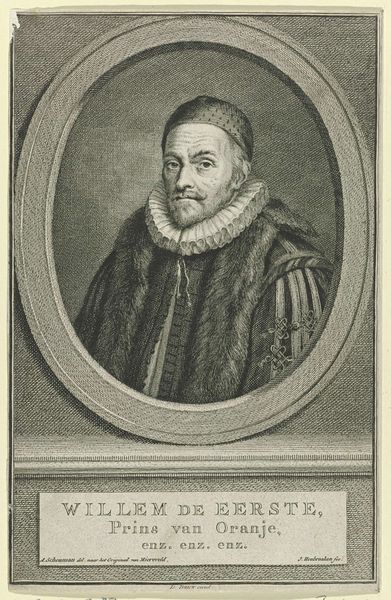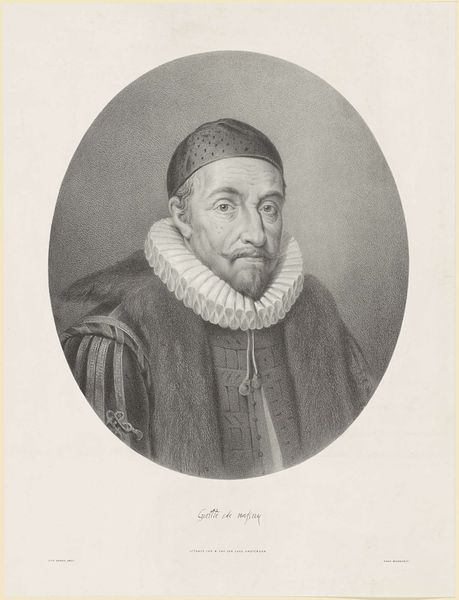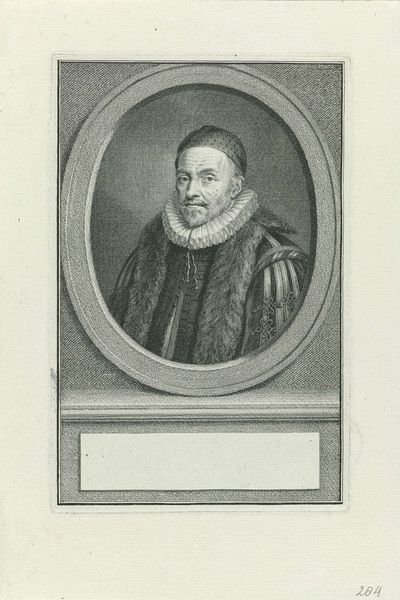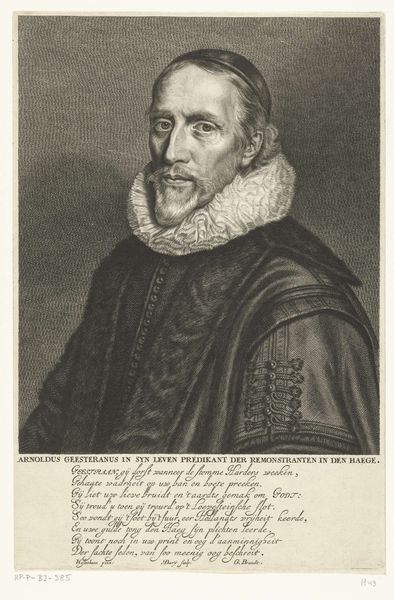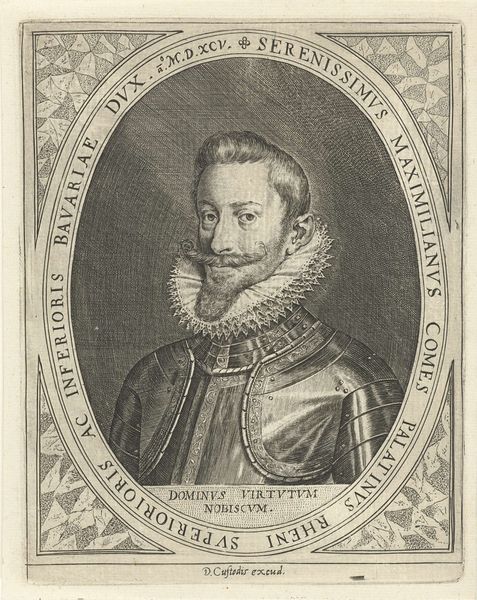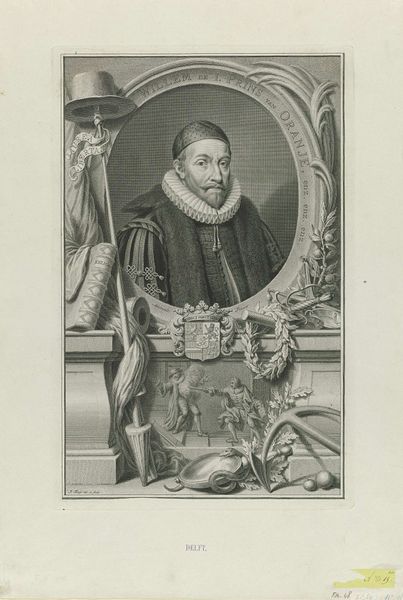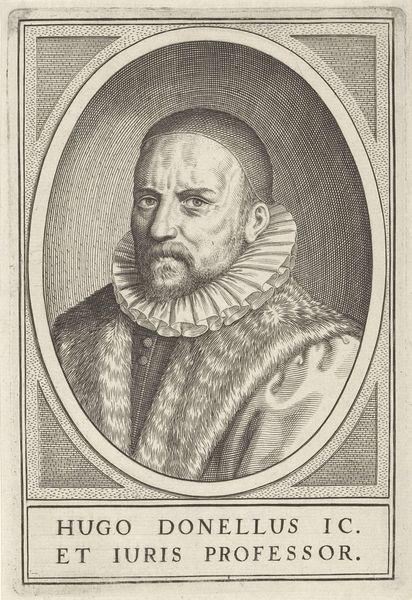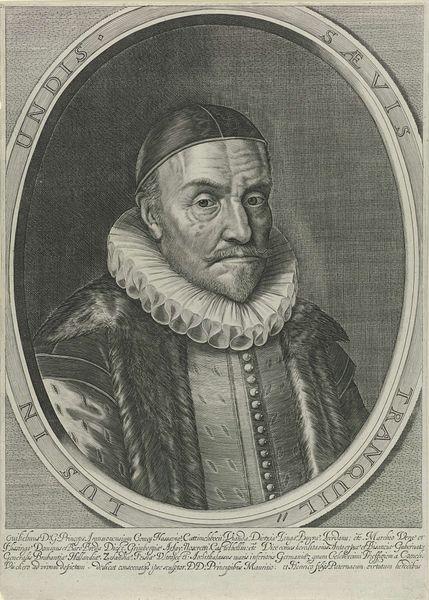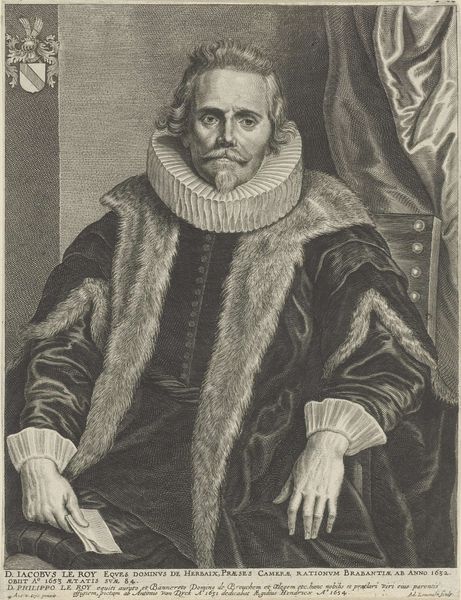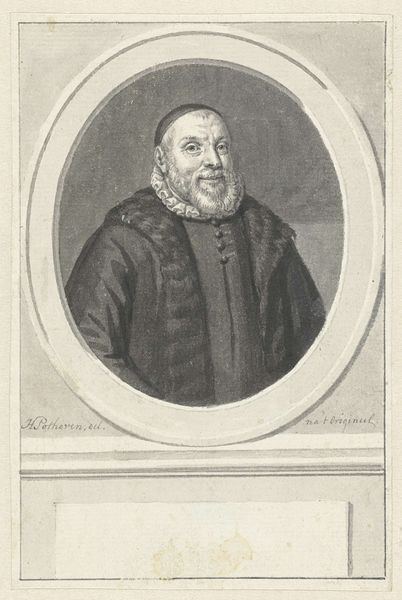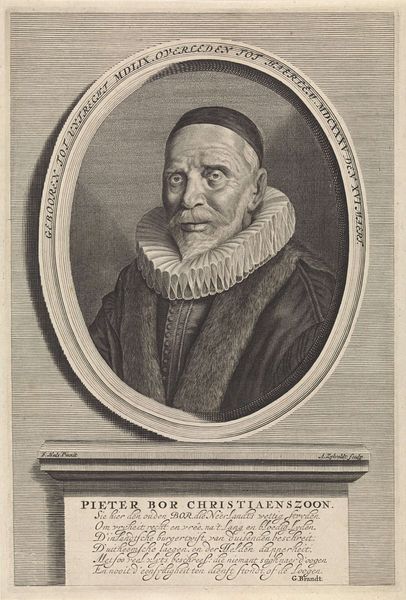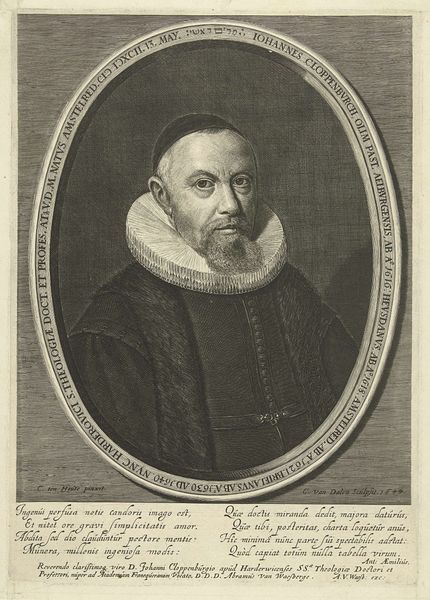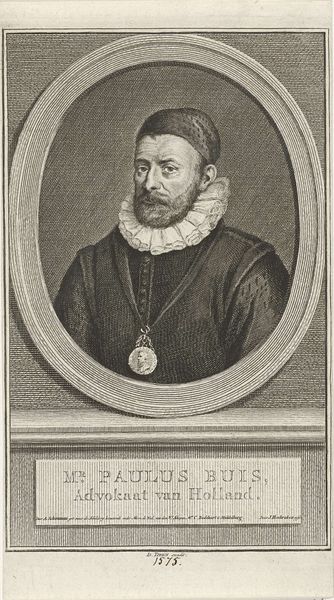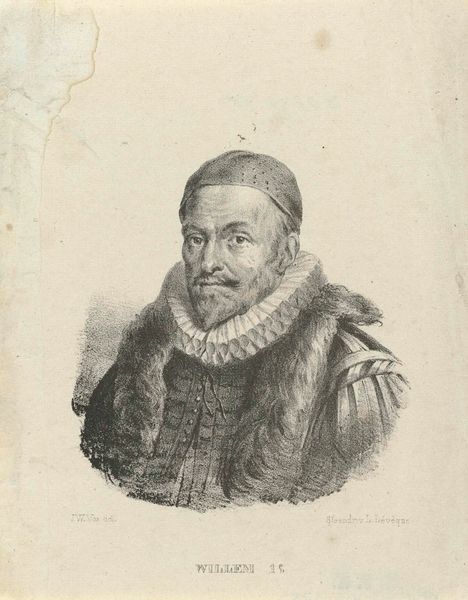
Dimensions: height 234 mm, width 155 mm
Copyright: Rijks Museum: Open Domain
This is Jan Frederik Christiaan Reckleben’s ‘Portret van Willem I, prins van Oranje’ from the nineteenth century. The print arrests our attention through its meticulous detail and tonal range achieved using engraving. The portrait is framed within an oval, which lends a classical formality, yet it also hints at the complexities beneath the surface. Reckleben doesn't simply present an image; he constructs a visual narrative that operates through signs and symbols. The subject's attire, notably the elaborate ruff, and fur trimmed robes, signifies status and power. These carefully rendered details speak to the semiotic function of clothing in conveying social standing. The coat of arms below acts as a visual anchor, grounding the identity of the sitter within a historical and political context. Consider how Reckleben uses the printmaking technique to achieve an aesthetic. The dense, cross-hatched lines create depth and texture, allowing light to play across the subject's face and clothing. This interplay of light and shadow doesn't just model form; it adds a layer of psychological depth. This portrait invites us to consider not just who Willem I was, but also how representation itself shapes our understanding of historical figures.
Comments
No comments
Be the first to comment and join the conversation on the ultimate creative platform.
